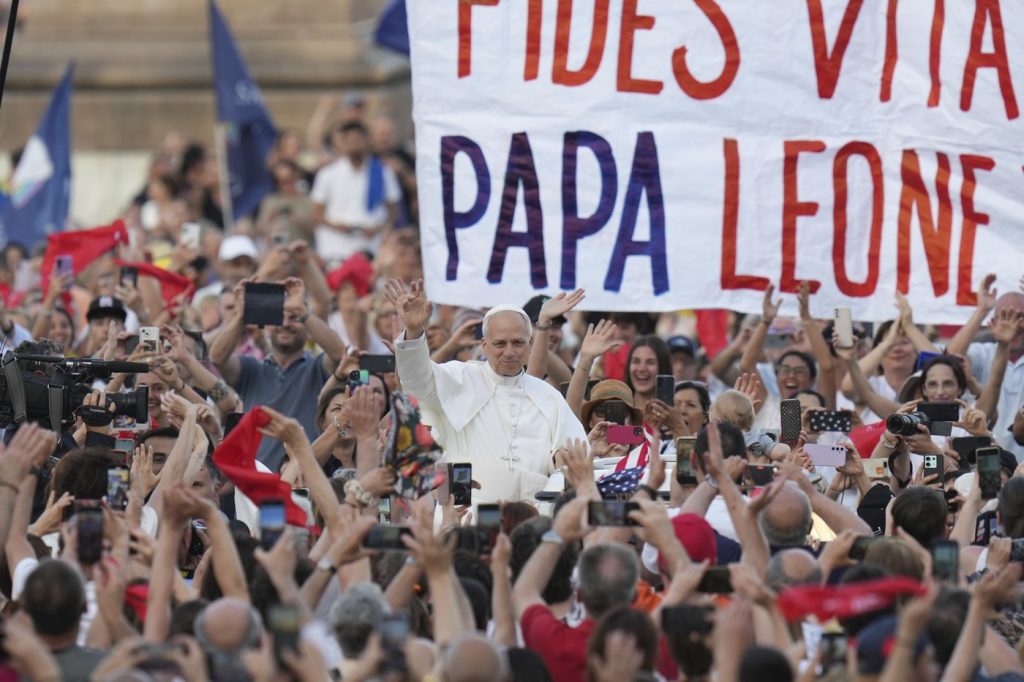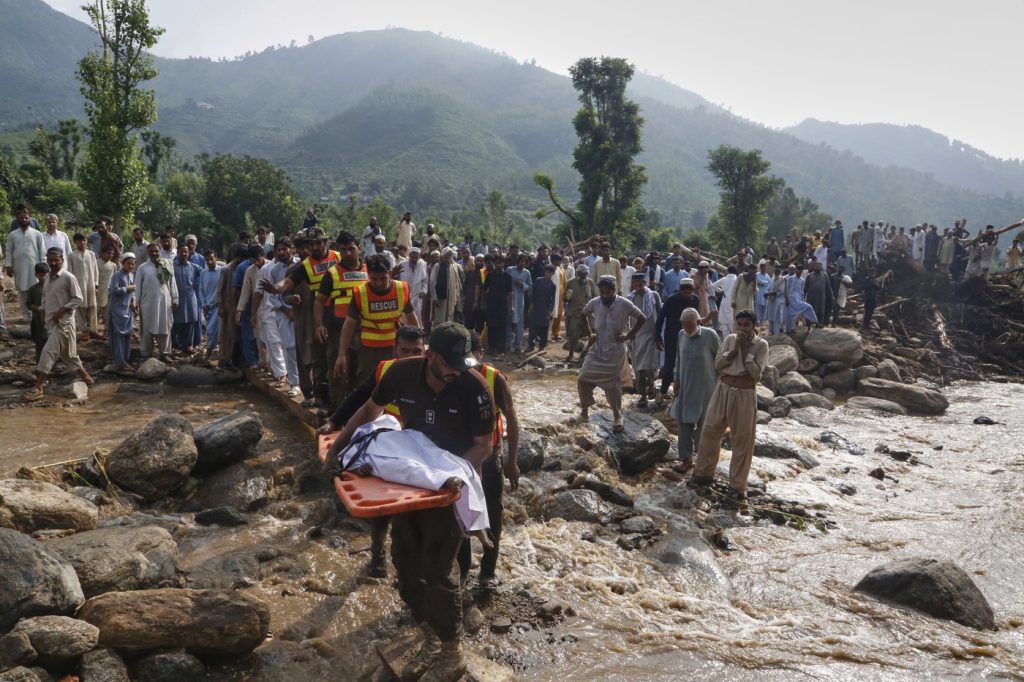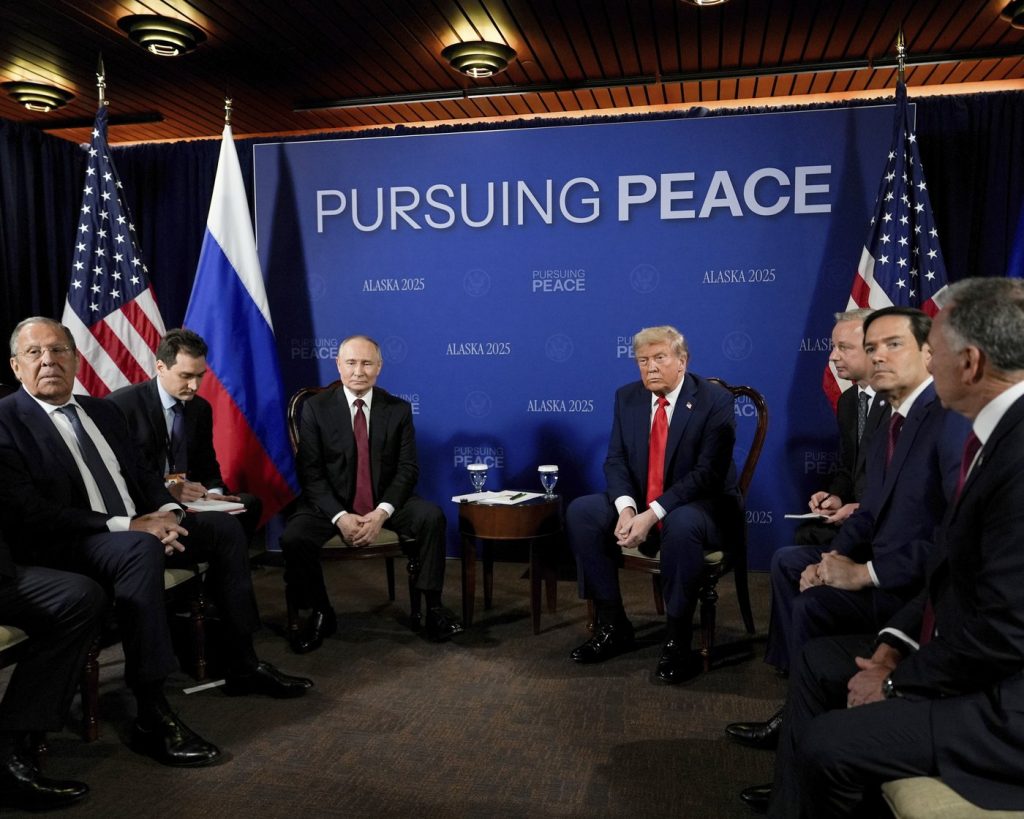VATICAN CITY (AP) — Pope Leo XIV made headlines recently when he engaged with tens of thousands of young believers during a Holy Year celebration at St. Peter's Square, reminiscent of the informal spontaneity of Pope Francis's papacy. The new pope delivered a compelling message in English, Spanish, and Italian, calling on the youth to be the "salt of the Earth" and "light of the world," encouraging them to spread hope and faith in Christ.
As Robert Prevost, now known as Pope Leo XIV, marks his 100th day in office, the distinct contours of his pontificate are becoming clearer. His leadership style shows notable continuity with Francis, yet he also indicates a shift toward calm and reserved governance. Leo appears eager to avoid controversy, emphasizing Christ and peace over personal spotlight.
Kevin Hughes, chair of theology and religious studies at Villanova University, noted Leo's direct and forthright approach while avoiding spontaneous press interactions, which many faithful find reassuring. This different style fosters a sense of relief among those who were often on edge during Francis's more tumultuous leadership.
In his initial 100 days, Leo has made strides to heal divisions that intensified during Francis’s tenure. His messages of unity, especially regarding the role of artificial intelligence—a topic that garners bipartisan concern—has been well-received. Additionally, Leo has reassured the Holy See's bureaucracy amid criticisms of Francis’s authoritative management, stating, “Popes come and go, but the Curia remains.”
While Leo is showcasing a desire for healing, he also aims to preserve some of Francis’s legacies. He celebrated the first-ever ecologically inspired Mass and has initiated plans for converting a 1,000-acre field north of Rome into a solar farm, moving towards making Vatican City a carbon-neutral state. Further, he has refined financial transparency measures and confirmed the elevation of John Henry Newman to "Doctor" of the Church, a decision made under Francis.
However, Pope Leo has avoided giving sensational interviews or making spontaneous remarks, contrasting sharply with his predecessor's style. For instance, he refrained from explicitly condemning nuclear weapons during a recent commemoration of the atomic bombings on Hiroshima and Nagasaki, a topic Francis notably addressed in the past.
Leo has opted for a slow and deliberate approach to his papacy, embodying a calm and stabilizing force for the Church. He is 69, suggesting he has ample time to mold his vision for the Vatican while maintaining continuity with earlier leadership. Vatican officials describe his impact as a "calming rain" for the Church.
Maria Isabel Ibarcena Cuarite, a member of a Catholic charismatic group, expressed that Leo’s adherence to traditional Catholic teachings resonated with her, especially in light of previous confusions caused by Francis's outreach to LGBTQ+ communities. Ibarcena emphasized that Leo’s strong stance on marriage as a sacrament between a man and woman provides clarity where she perceived Francis was ambiguous.
Pope Leo XIV has made it clear that he identifies first as a "son of St. Augustine,” reflecting the Augustinian tradition which values a communal journey towards truth and prayer. Since his election on May 8, he frequently references St. Augustine in his speeches and homilies, showcasing a commitment to Augustinian principles.
Although much of Leo’s philosophy mirrors that of Francis, their relationship has been complex. Leo was appointed bishop of Chiclayo, Peru, by Francis and later took an important role in vetting bishop nominations. Despite past disagreements, Leo’s election seems to be a continuation of the vision Francis put forth in 2013, emphasizing outreach to the peripheries of society.
Overall, Pope Leo XIV's first 100 days reflect a thoughtful balance between the need for stability and a commitment to foundational values within the Church. His papacy may indeed mark a new chapter in the Vatican’s approach to global issues.












